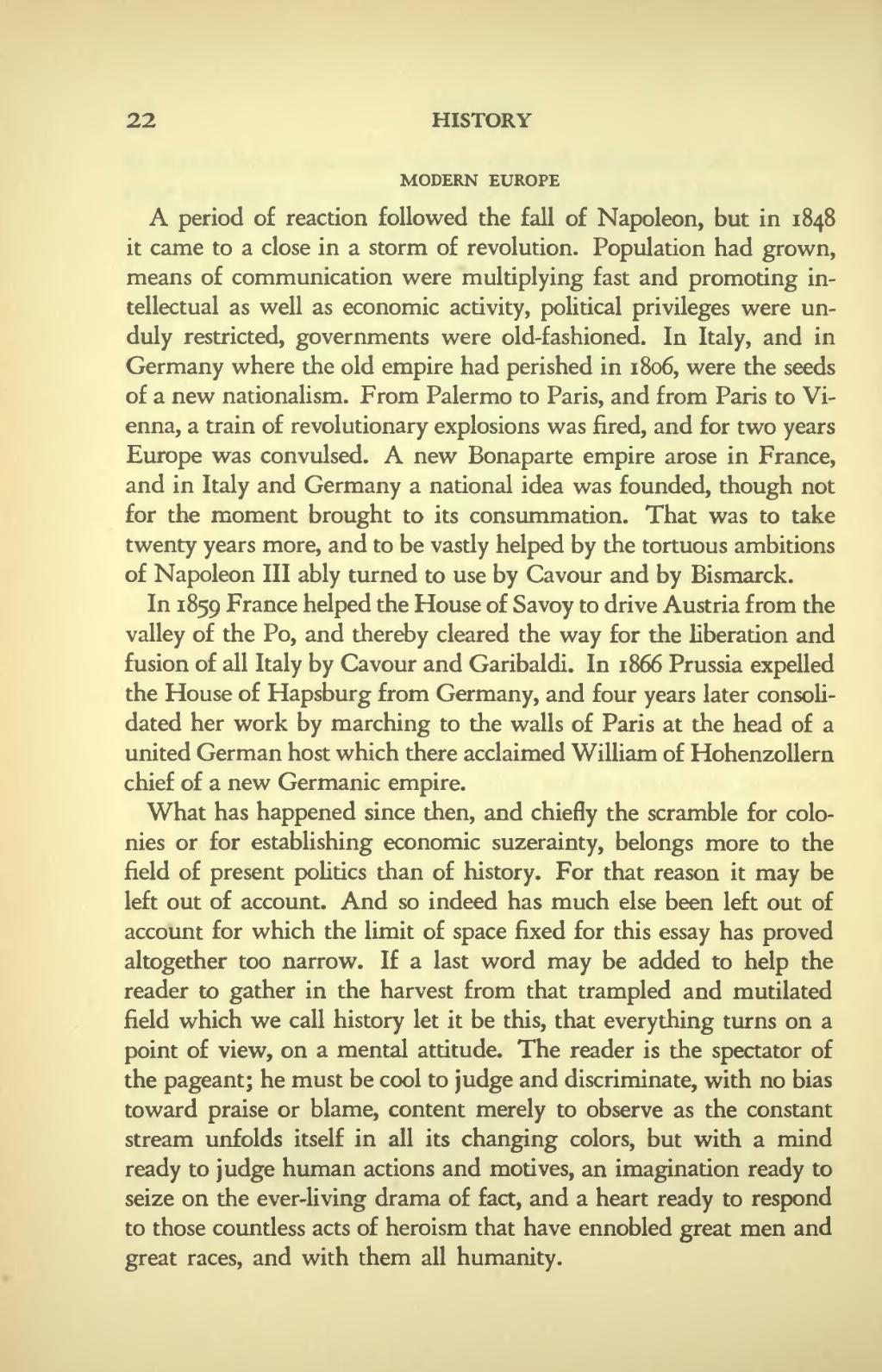MODERN EUROPE
A period of reaction followed the fall of Napoleon, but in 1848 it came to a close in a storm of revolution. Population had grown, means of communication were multiplying fast and promoting intellectual as well as economic activity, political privileges were unduly restricted, governments were old-fashioned. In Italy, and in Germany where the old empire had perished in 1806, were the seeds of a new nationalism. From Palermo to Paris, and from Paris to Vienna, a train of revolutionary explosions was fired, and for two years Europe was convulsed. A new Bonaparte empire arose in France, and in Italy and Germany a national idea was founded, though not for the moment brought to its consummation. That was to take twenty years more, and to be vastly helped by the tortuous ambitions of Napoleon III ably turned to use by Cavour and by Bismarck.
In 1859 France helped the House of Savoy to drive Austria from the valley of the Po, and thereby cleared the way for the liberation and fusion of all Italy by Cavour and Garibaldi. In 1866 Prussia expelled the House of Hapsburg from Germany, and four years later consolidated her work by marching to the walls of Paris at the head of a united German host which there acclaimed William of Hohenzollern chief of a new Germanic empire.
What has happened since then, and chiefly the scramble for colonies or for establishing economic suzerainty, belongs more to the field of present politics than of history. For that reason it may be left out of account. And so indeed has much else been left out of account for which the limit of space fixed for this essay has proved altogether too narrow. If a last word may be added to help the reader to gather in the harvest from that trampled and mutilated field which we call history let it be this, that everything turns on a point of view, on a mental attitude. The reader is the spectator of the pageant; he must be cool to judge and discriminate, with no bias toward praise or blame, content merely to observe as the constant stream unfolds itself in all its changing colors, but with a mind ready to judge human actions and motives, an imagination ready to seize on the ever-living drama of fact, and a heart ready to respond to those countless acts of heroism that have ennobled great men and great races, and with them all humanity.
